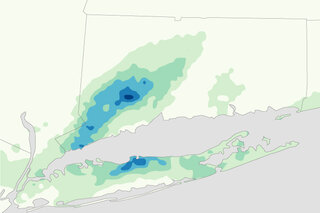A new report captures opportunities that Tribal Nations, Tribal Colleges and Universities, and their partners have identified to strengthen engagement and action around drought resilience.
Researchers from NOAA have produced a new online dashboard on the National Marine Ecosystem Status website that shows how ocean acidification is impacting eleven different marine ecosystems in the United States.
A new study finds that the Florida Current, a key component of the Atlantic Meridional Overturning Circulation, has remained stable for the past 40 years.
A newly available report, “Climate Adaptation Barriers and Needs Experienced by Northwest Coastal Tribes,” aims to better understand the state of climate adaptation among Northwest coastal Tribes.
Some scientists are exploring Stratospheric Aerosol Injection (SAI) as warming-mitigation technique. A new article calls for a comprehensive international assessment of SAI’s potential impacts, risks and benefits.
The Northwest Atlantic Shelf, from the coasts of North Carolina to Newfoundland, has warmed faster than almost any other part of the ocean. A new study forecasts a temporary warming pause, but long-term warming is projected to continue.
Extreme weather events have increased since the pre-industrial period, but the trend has regional variations. New research shows that the spatial structure will likely change under a high greenhouse gas emissions scenario.
Besides greenhouse gasses, U.S. oil and natural gas production emits ethane. A new study indicates that ethane emission levels are about three times higher than the EPA’s estimates.
Raindrops that are cooler than the ground they land on have a cooling effect, one often omitted from weather models. A new study finds that this effect in India can reduce overall rainfall.
